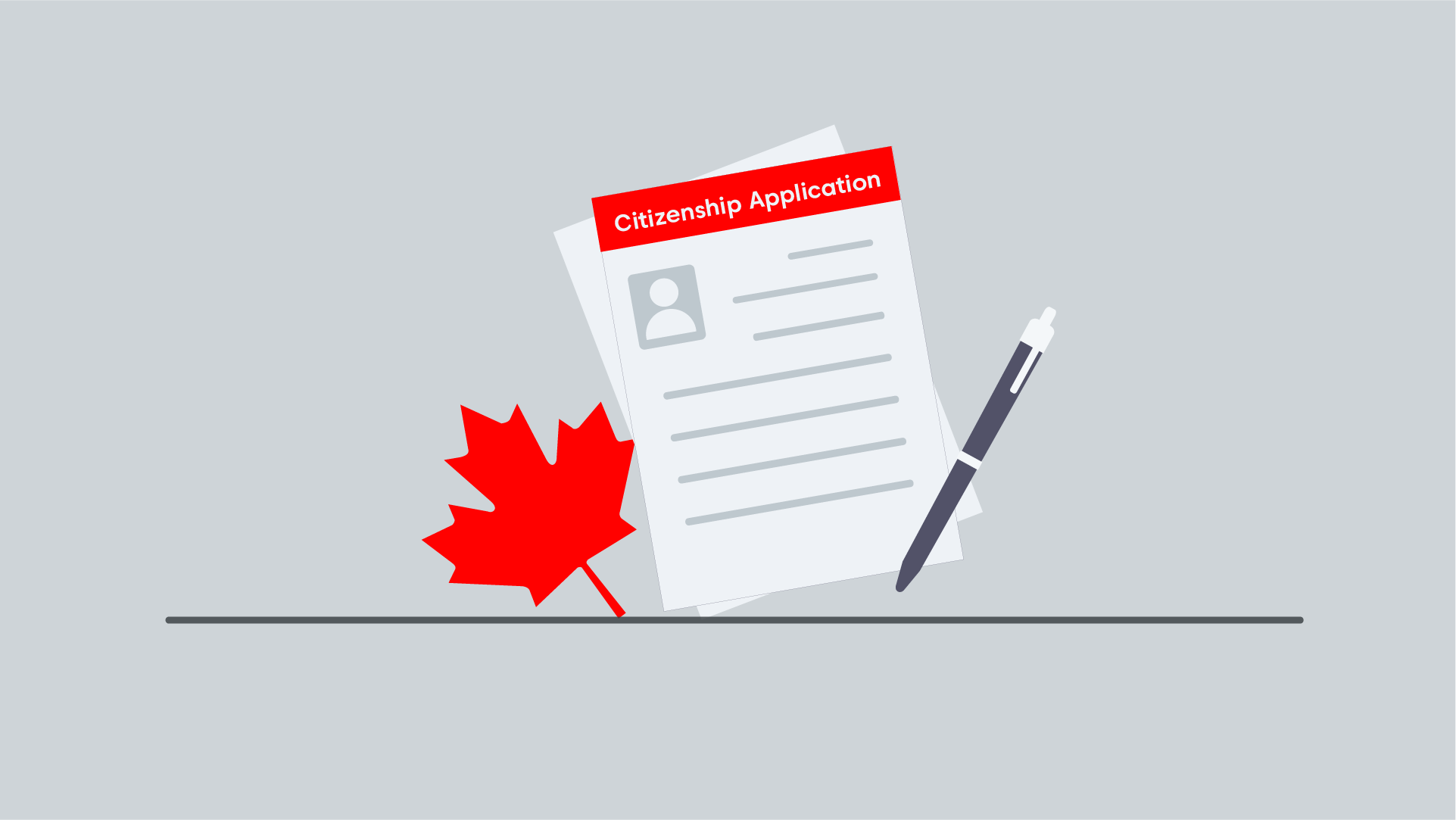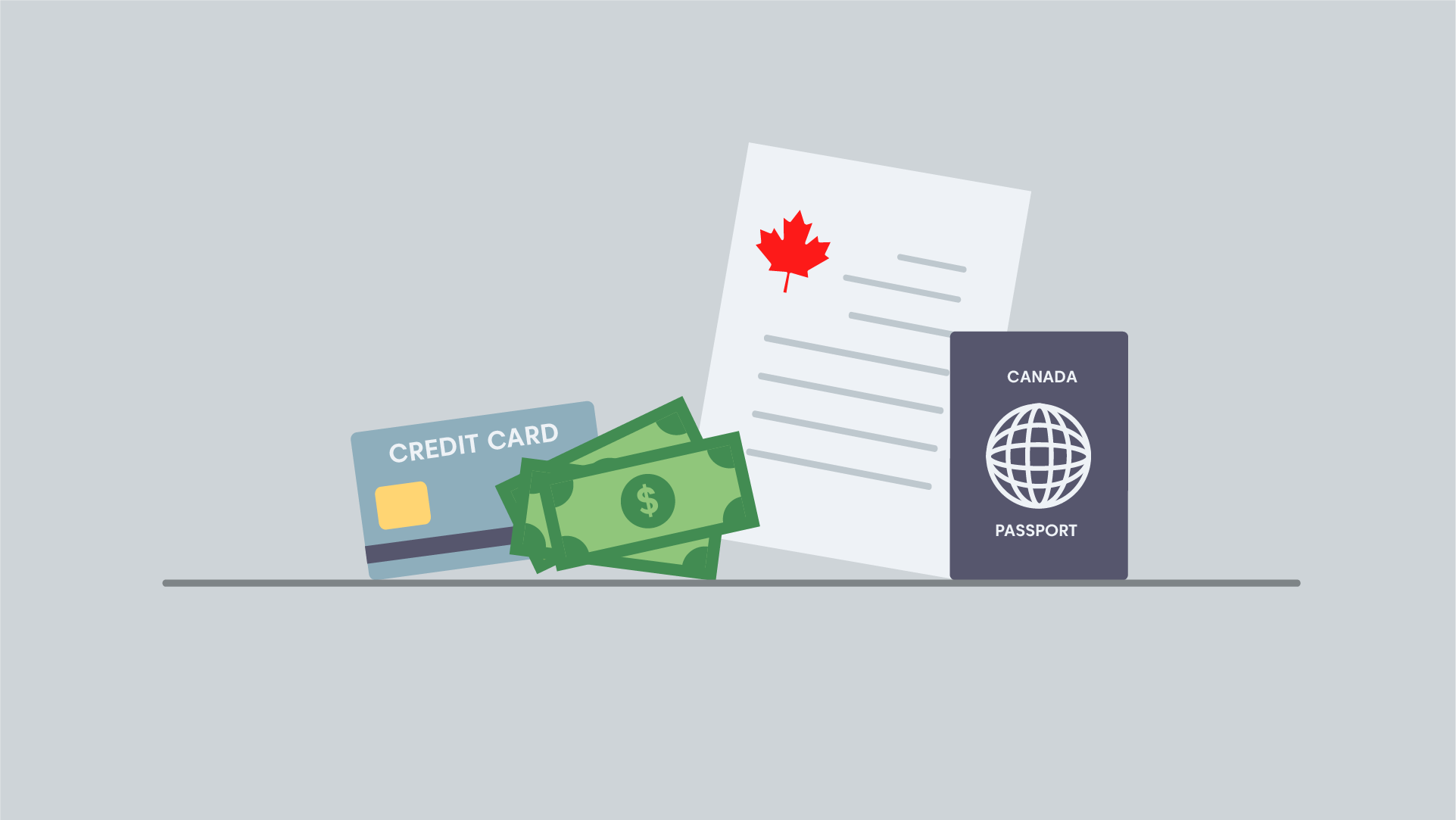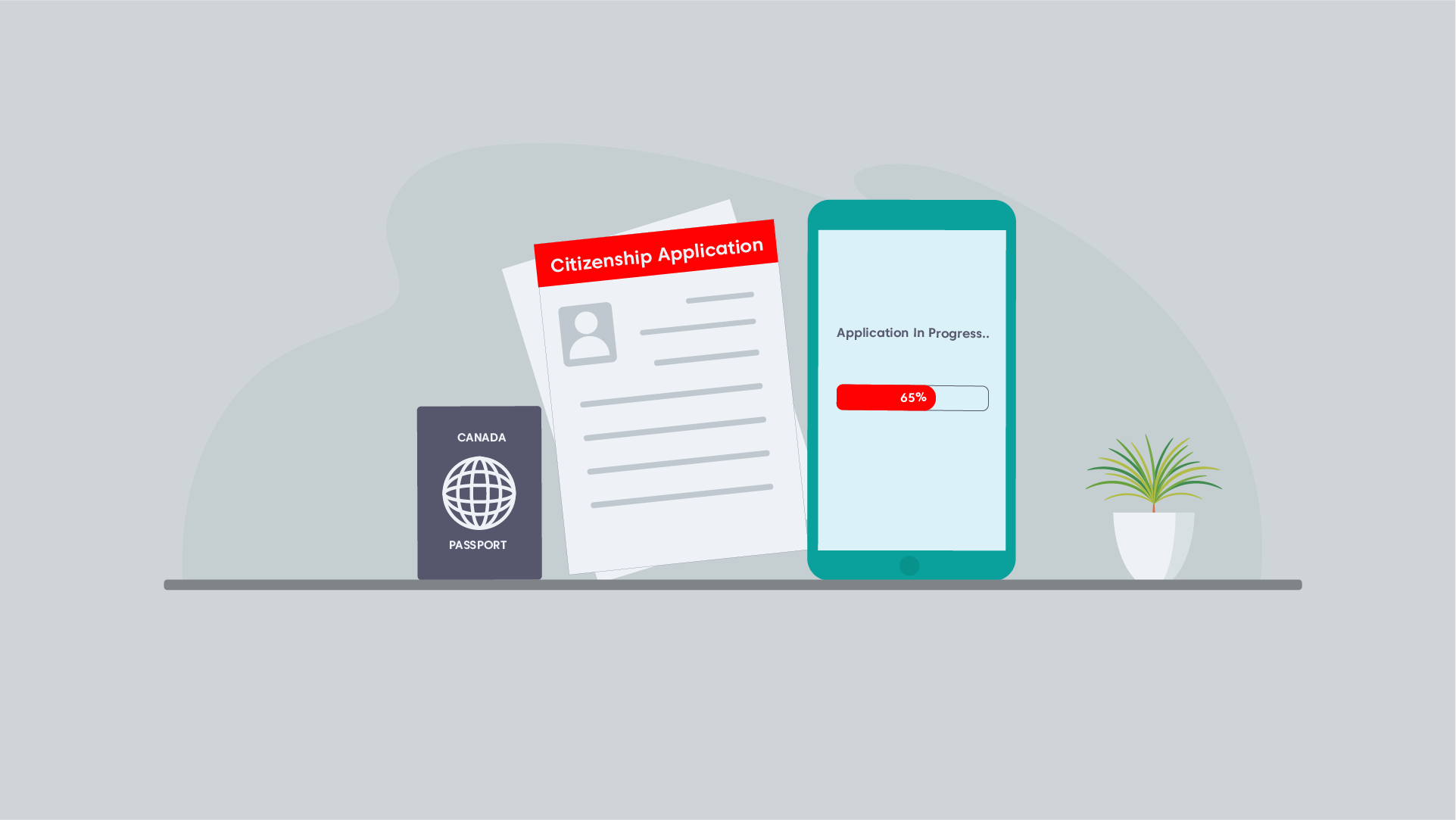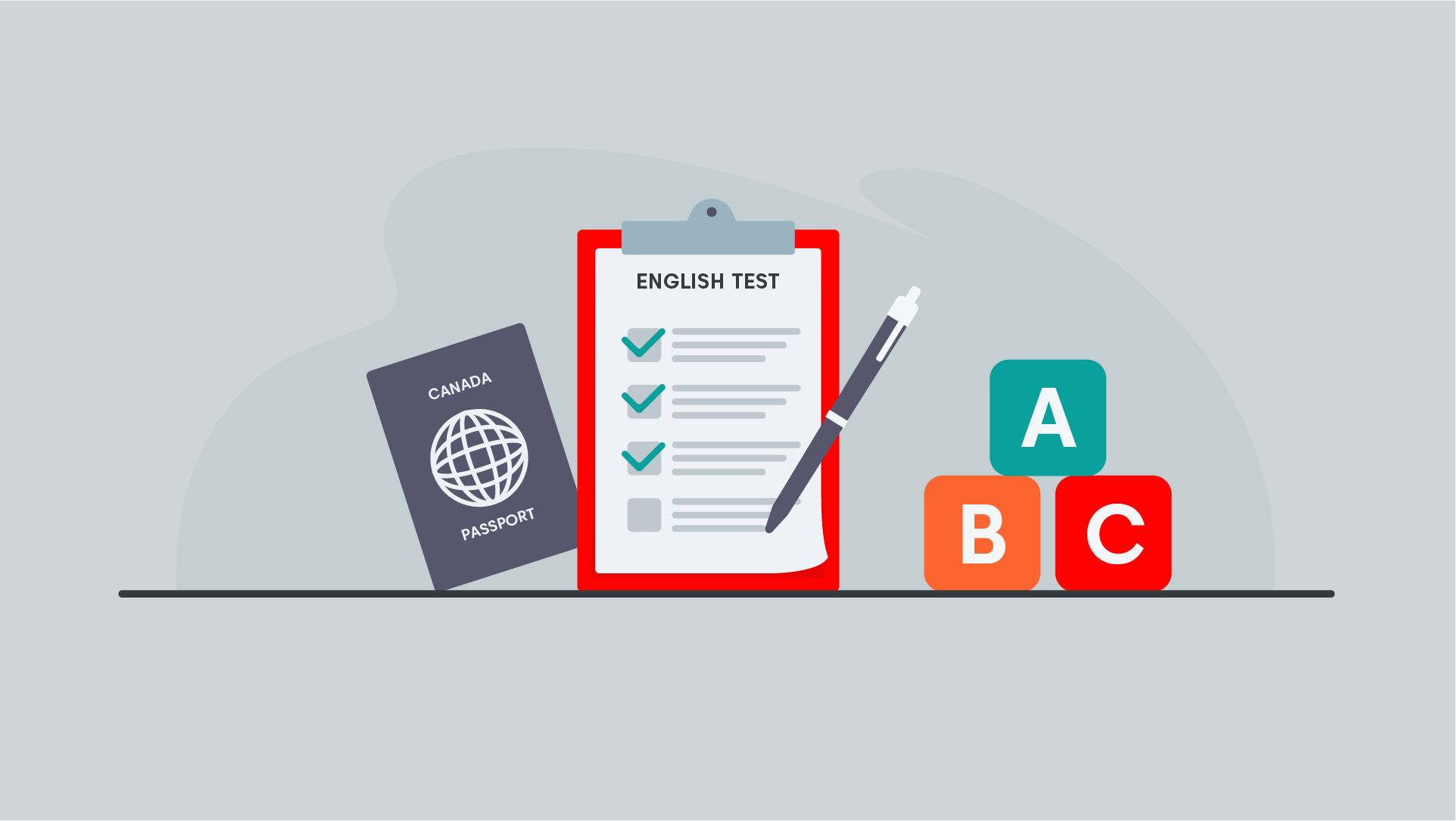Applying for Canadian Citizenship? Find Out If You're Eligible!
By Umme Hani on Oct 22, 2024
Are you ready to become a part of one of the greatest countries in the world? We’re sure you want to enjoy all the incredible benefits that come with calling this place home. The perks are vast and life-changing. They range from the right to vote and access to quality healthcare to the freedom of traveling visa-free. To top it all off, this country boasts some phenomenal landscapes that are guaranteed to take your breath away!
While all that sounds incredible, we’re sure you know that the road to becoming a citizen isn’t always smooth. It’s easy to feel overwhelmed by the details, from determining the eligibility criteria to putting together paperwork.
Fortunately, you don’t have to worry! If you’re an aspiring citizen, stick with us as we walk you through every detail you need to know about Canadian citizenship.
Canadian Citizenship Requirements and Eligibility
First things first, you must determine whether you qualify for Canadian citizenship. You MUST meet the following requirements for citizenship in Canada to be able to even be considered.
Permanent Residency Status
To apply for Canadian citizenship, you must first be a permanent resident of Canada. This status grants you the legal right to live, work, and study in Canada indefinitely.
If you do not have this status, you must apply for PR. You can do this through one of the immigration pathways, such as Express Entry, Family Sponsorship, or Provincial Nominee Programs. Each of these programs has specific eligibility criteria and requirements that you must meet.
Your permanent residency status must be valid when you apply for citizenship. This means you need to have a current PR card or valid documentation. Any lapse in your status could complicate your application. Moreover, you must fulfill the residency obligation. This means you must live in Canada for at least 730 days out of five years.
Physical Presence in Canada
You need to have lived in Canada for at least 1,095 days (three years) in the last five years. This is a key question many ask: "Can I apply for Canadian citizenship after 3 years?" Yes, as long as you've been physically present for the required number of days.
To make sure you've reached the minimum, use the online residency calculator on the Immigration, Refugees, and Citizenship Canada (IRCC) website to count the exact number of days you've been in the country.
Filing Taxes
To be eligible for Canadian citizenship, you must have filed taxes for at least three out of the last five years. This tax filing requirement is directly tied to your physical presence in Canada. The government uses your tax records to verify that you’ve met the residency requirement and are contributing financially to Canadian society.
Failure to meet this obligation can lead to delays or even denial of your citizenship application. If you’ve missed filing taxes in any of the required years, it’s crucial to address this before applying. Your tax filings must be accurate and up to date. Discrepancies may cause complications during the application review process.
Language Proficiency
If you're between 18 and 54, you must prove your proficiency in either English or French for eligibility. This is to ensure you can communicate effectively in one of Canada's official languages. You must provide official documentation showing you’ve passed a recognized language test.
For English, commonly accepted tests include the Canadian English Language Proficiency Index Program (CELPIP) and the International English Language Testing System (IELTS). For French, you can submit results from Test d’Évaluation de Français (TEF) Canada.
These tests assess your reading, writing, listening, and speaking skills. You must achieve the minimum language level required, which is typically Canadian Language Benchmark (CLB) Level 4 or higher. Your test results must be recent, generally no older than two years at the time of application.
Knowledge of Canada
Applicants aged 18 to 54 must pass a citizenship test. This test evaluates their knowledge of Canadian history, geography, economy, laws, and government structure. By taking this test, you demonstrate your understanding of Canada’s values, responsibilities, and rights as a citizen. The test consists of 20 multiple-choice and true/false questions. It is based on the official study guide, Discover Canada. This guide provides all the information you need to prepare for the test.
The minimum passing score for the test is 75%. Therefore, you must get at least 15 out of 20 questions right. With that said, Failing to pass the test on the first try doesn’t disqualify you, as you’ll be given another opportunity to retake it.
Dedicate time to studying Discover Canada thoroughly, pairing its learning with practice tests. These tests will help you cover all essential topics through targeted practice. They help you cover significant historical events, the structure of the Canadian government, the rights protected by Canadian law, and more.
Practice for Your Canada Citizenship Test Now!
Access hundreds of real-like questions
Start a Practice TestProhibitions
Certain legal barriers could make you ineligible for Canadian citizenship. For example, if you’ve had any criminal convictions or are currently facing pending charges. Most of the time, these legal issues can halt your application process entirely.
Time spent outside Canada due to incarceration or legal restrictions won’t count towards the physical presence requirement. So, even if you've spent time abroad, those days won't add up if they were tied to legal issues.
Being upfront about your legal history is crucial. Failing to disclose these details could lead to delays or outright denial of your application. The key takeaway? If you’ve had legal troubles, consult an immigration lawyer or get professional advice. Do this before proceeding with your application to avoid any unpleasant surprises.
Canadian Citizenship Application Process
Becoming a Canadian citizen involves several steps, but understanding the process can make things smoother. You must be prepared to meet all the Canadian citizenship application requirements.
Step 1: Check Your Eligibility
Before beginning the Canada citizenship application process, you must meet the above-mentioned criteria. A small recap:
- You must be a permanent resident.
- You must meet physical presence requirements.
- You must file your taxes.
- You must demonstrate your knowledge of Canada and its official languages.
Double-check the requirements, as any missing documentation or misstep can delay your application.
Step 2: Gather Necessary Documents
Once you're confident that you meet the criteria, it's time to gather your supporting documents. For an application for Canadian citizenship, you'll need to provide your permanent resident card, proof of language proficiency, tax records, and any additional forms that apply to your personal situation. If you’re applying as a family, make sure all your applications are linked properly. Keep in mind that missing or incorrect documents can slow down the process significantly.
Step 3: Apply for Citizenship Canada Online or By Paper
Canada offers two ways to submit your application. You can apply for citizenship online via the IRCC portal, which is often quicker and easier to track. The online process guides you through each step, ensuring all necessary fields are filled out and documents are uploaded correctly. Alternatively, you can still submit a paper application. However, remember that the “Apply Citizenship Canada” online option is more efficient. Be sure to keep copies of everything for your own records.
Step 4: Pay the Application Fee
When submitting your Canada citizenship application, you must pay the processing fee. This includes a right of citizenship fee, which is payable online. Make sure to double-check the current rates on the IRCC website, as fees may change over time.
Step 5: Track Your Application
After applying, you can track your application for Canadian citizenship using the IRCC’s online tool. This allows you to stay updated on the status of your application, including when it's received, when tests are scheduled, and when a decision is made. If your application faces delays, you can also contact the IRCC for updates.
Staying informed can make applying for Canadian citizenship a smoother process.
Canadian Citizenship Application Processing Time
The time it takes to process your citizenship application can vary depending on several factors. In general, it ranges from 12 to 24 months. This might seem like a long wait. However, it's important to remember that several factors can affect the timeline. These include the volume of applications and whether your documents are organized.
If you find yourself in a situation where time is critical, you may qualify for expedited processing. Such situations include urgent travel or personal emergencies. However, these cases are rare and require strong documentation proving the urgency. The best option is to make sure everything in your application is correct and complete from the start. That way, you can avoid delays.
Learn all about the nitty-gritty of the Canadian citizenship application process time here.
Canadian Citizenship Application Tracking and Status
Once you’ve submitted your citizenship application, the good news is you won’t be left in the dark! You can easily track your application’s progress using the online tool provided by IRCC. After you submit your application, you’ll receive regular updates. These updates will inform you when IRCC has received your application, when your citizenship test is scheduled, and when a final decision is made.
If there’s a delay, don’t panic. You can contact IRCC for more clarity on the situation. Additionally, keep an eye on your email and check the status of your Canadian citizenship application online through the portal.
Learn more about the Canadian citizenship application tracking and status here.
Special Considerations
While most citizenship applications follow a standard path, some applicants face unique circumstances. Here, we’ll discuss some of those circumstances.
Citizenship for Minors
There are two main options when applying for Canadian citizenship as a minor. Minors can apply alongside their parents or submit a separate application if necessary. Regardless of the approach, meeting specific requirements is mandatory. These typically include the minor being a permanent resident and physically present in Canada for a specified period, similar to adult applicants. If you're applying for Canadian citizenship as a family online, ensure all individual applications are linked correctly to avoid delays. This is an integral point for families who are handling multiple applications at once.
Citizenship for Adopted Children
If you’ve adopted a child from another country, the process for them to become a Canadian citizen may differ slightly. Children adopted by Canadian citizens outside of Canada follow a separate process from biological children born in the country. You’ll want to consult the IRCC guidelines to understand the specific steps required. It often involves providing additional documentation, such as proof of legal adoption. Still, the process remains manageable, and once approved, adopted children will enjoy the same citizenship rights.
Citizenship for Refugees and Stateless Individuals
The citizenship process often involves extra steps for refugees or stateless individuals. While the pathway to citizenship is open, applicants may need to provide more extensive documentation, such as proof of their status and the circumstances that make them stateless. However, once these additional steps are completed, they can follow the same general process. As with other applicants, physical presence and filing taxes remain a crucial requirement.
Dual Citizenship
Canada is one of the many countries that allows dual citizenship. This means you can retain your original nationality if your home country permits it. It is quite beneficial for individuals who want to hold Canadian citizenship while keeping ties to their country of origin. If you’re considering dual citizenship, make sure to research the rules in your home country. For example, if you’re wondering how to apply for Italian citizenship in Canada or how to apply for US citizenship from Canada, it’s important to check their specific regulations on dual nationality. Canada’s system is flexible, but you’ll want to make sure that both countries are aligned with your plans.
Post-Citizenship Responsibilities
Becoming a Canadian citizen brings a wealth of new opportunities, but it also comes with important responsibilities. After your Canadian citizenship application is approved, there are several areas to consider as you begin your new life as a citizen.
Rights of Canadian Citizens
As a Canadian citizen, you’ll enjoy full rights, including the ability to vote in federal, provincial, and municipal elections. You can also run for public office and participate in democratic processes that shape the country's future. Additionally, citizenship allows you to apply for a Canadian passport, one of the world’s most powerful passports. This grants you the freedom to travel more easily across international borders. Beyond the practical benefits, being a Canadian citizen means being part of a welcoming, multicultural society.
Obligations of Canadian Citizens
While you gain many rights, you also take on new obligations. Obeying Canadian laws is a fundamental expectation of all citizens. This includes federal, provincial, and local laws, as well as respecting the rights of others. Another significant responsibility is to pay taxes. As a citizen, you must contribute to the country’s financial health through taxes. This displays your support for essential services like healthcare, education, and infrastructure.
Frequently Asked Questions
Here are some commonly asked questions about Canadian citizenship.


